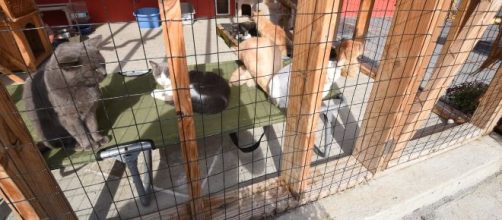Animal shelters and adoption facilities can be found virtually everywhere, yet thousands of animals go unadopted each year. Some animals aren’t adopted because of behavior problems, yet others are routinely avoided by potential human owners because they don’t meet aesthetic social standards. Whether it’s a requirement to own a yard on your property or a need to work from home, here are some of the reasons why some animals aren’t adopted.
Hundreds of thousands are euthanized each year
That’s according to an extensive report from the Washington Post, which notes that millions of dogs alone are up for adoption in the United States each year, with hundreds of thousands of them never finding a home.
Incapable of caring for such a large sum of animals, particularly when many are elderly, sick, or require special treatment, shelters and animal facilities are forced to euthanize those animals which don’t attract the eye of a human owner looking for a new pet.
According to information made available by the American Society for the Prevention of Cruelty to Animals, approximately 7.6 million companion animals enter shelters each year. Companion animals are those which are normally considered pets by humans and serve as valuable companions (and in some cases, medical assistants) to their owners. Sometimes, shelters taking in these pets try to drum up adoption enthusiasm by giving them cute nicknames destined to go viral and raise attention for the shelter.
Sometimes, this is incredibly successful, as in the case of an Austin, Texas shelter that went viral and subsequently found homes for most of the animals. BuzzFeed News has written an extensive story on such shelters going viral, but there could be reasons to believe that this internet-based tactic is actually backfiring.
Study findings
According to a study put forward by Professor David Markowitz at the University of Oregon, for instance, these cute nicknames for animals could be preventing some of them from finding a home.
“The more analytical a text is, the better off a pet’s probability of being adopted,” Markowitz told the Mail Tribune after surveying the language used in thousands of online pet-adoption advertisements.
Describing these shelter animals and guinea pigs in a playful, lighthearted fashion may thus turn away those potential adopters who are looking for analytical information about their potential pets, like their age or medical needs.
Viral-ready names aren’t the only reason thousands of animals aren’t adopted; puppy mills and other unethical production facilities churn out large numbers of newborn animals to sell them in such a competitive fashion that there are few potential owners left over to visit the local animal shelter. Other reasons, like lacking a yard or not being home often enough, could lead shelters or adoption facilities to deny potential owners adoption privileges.


